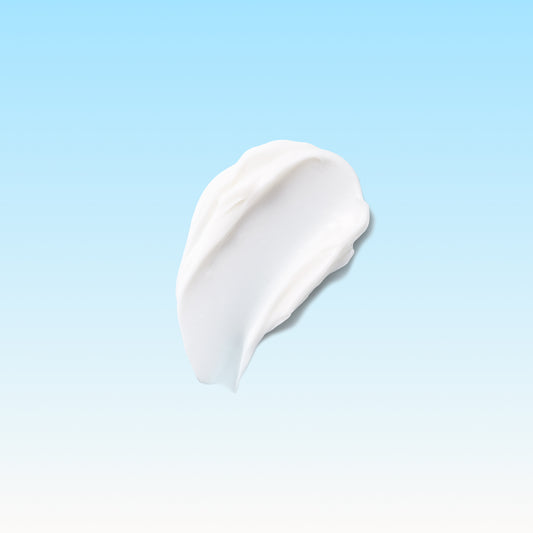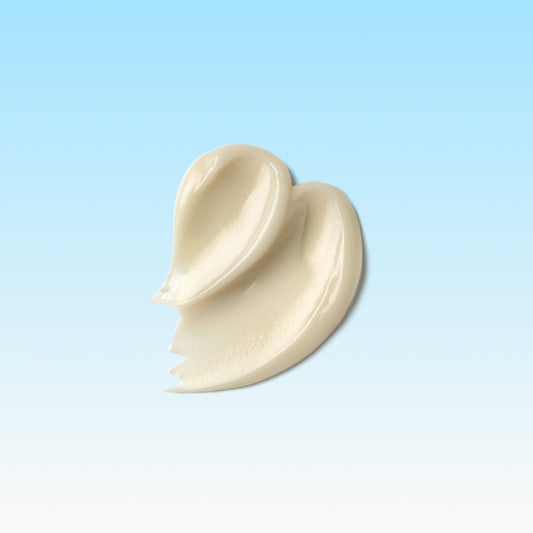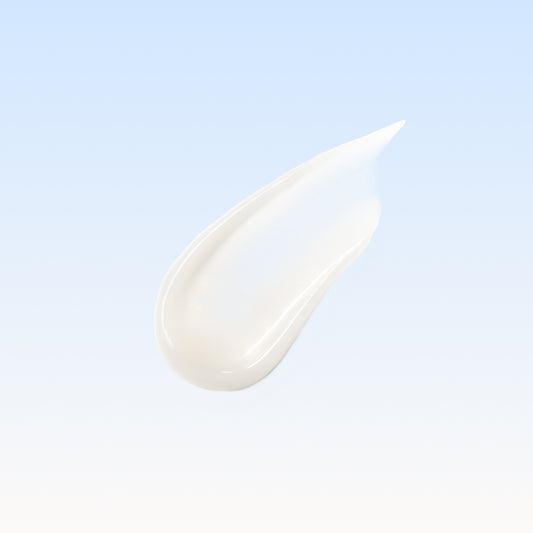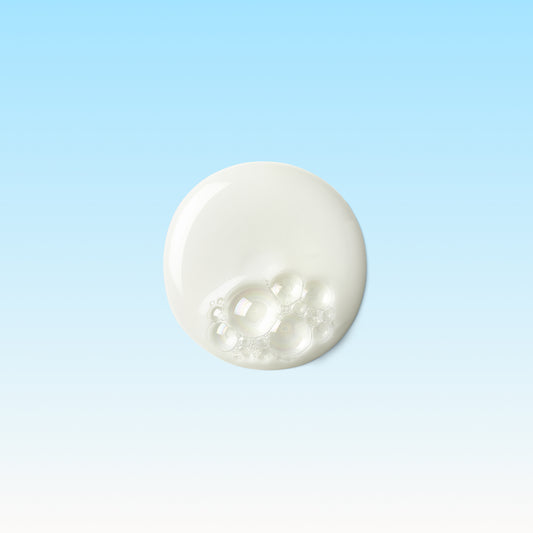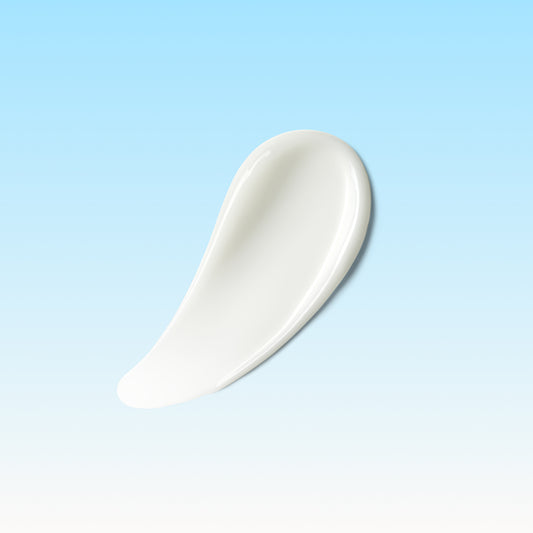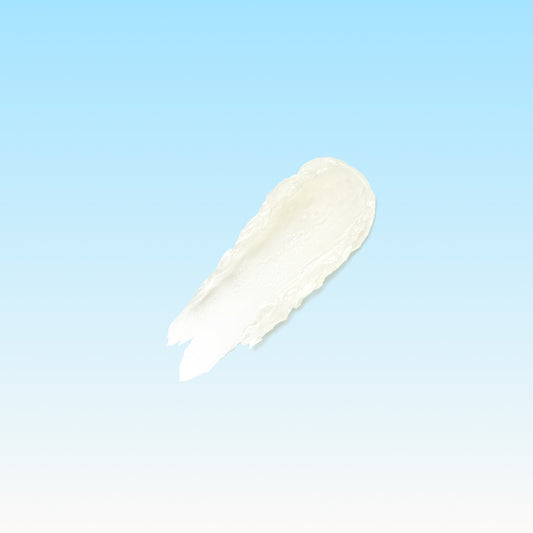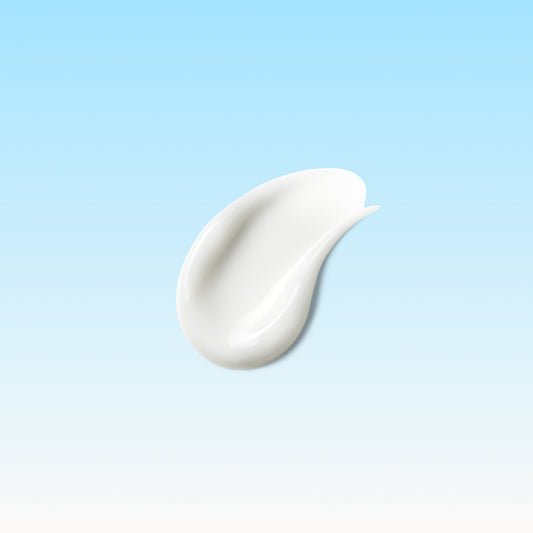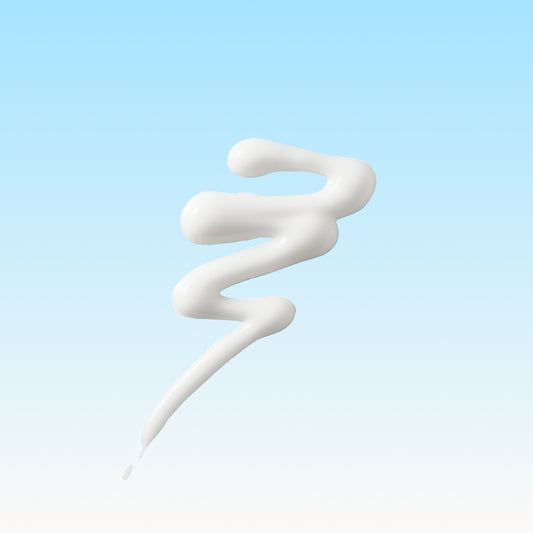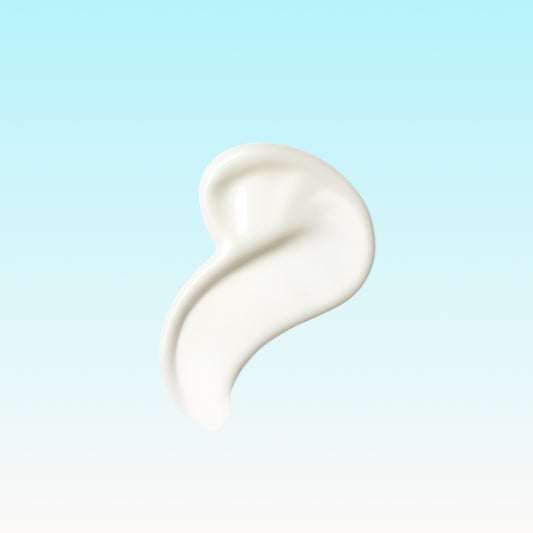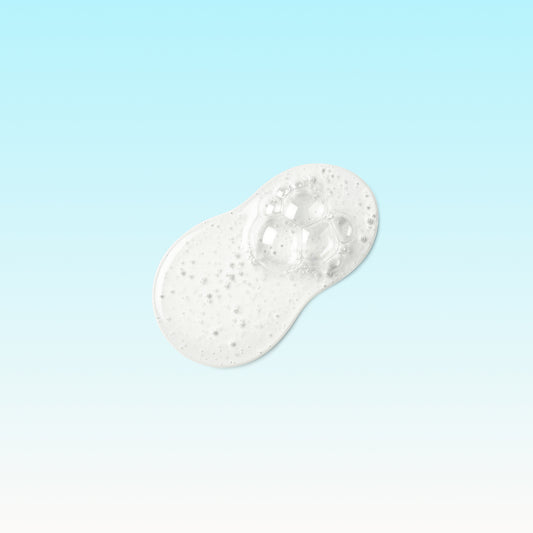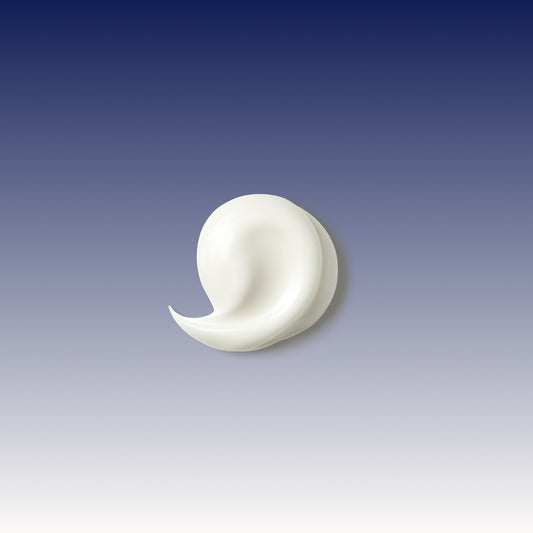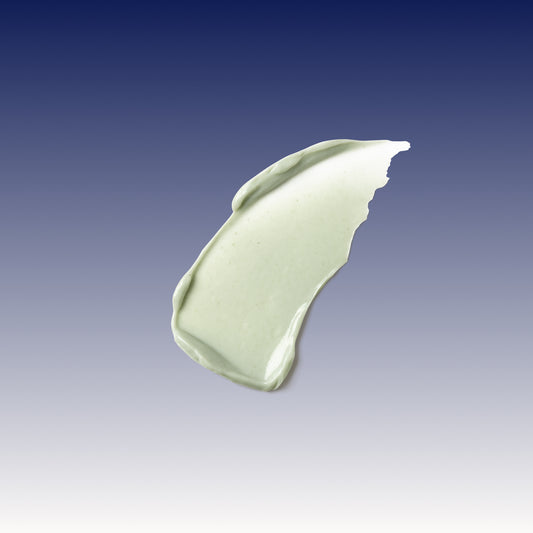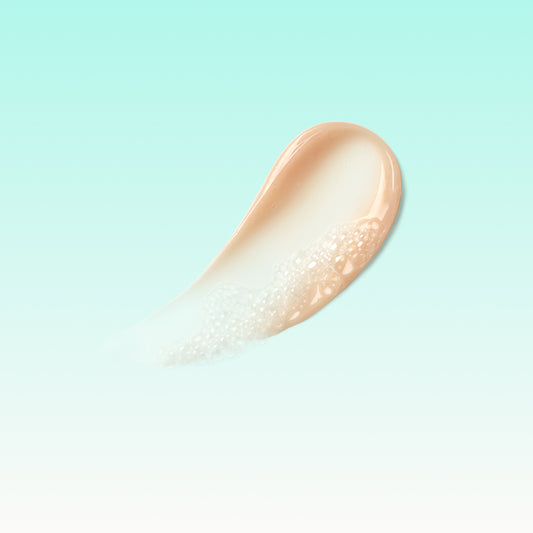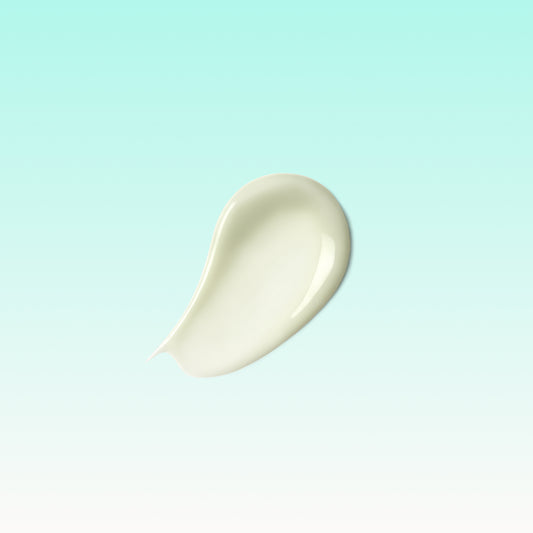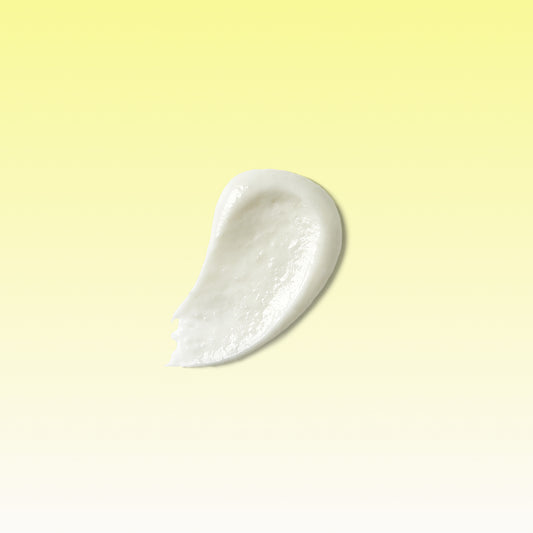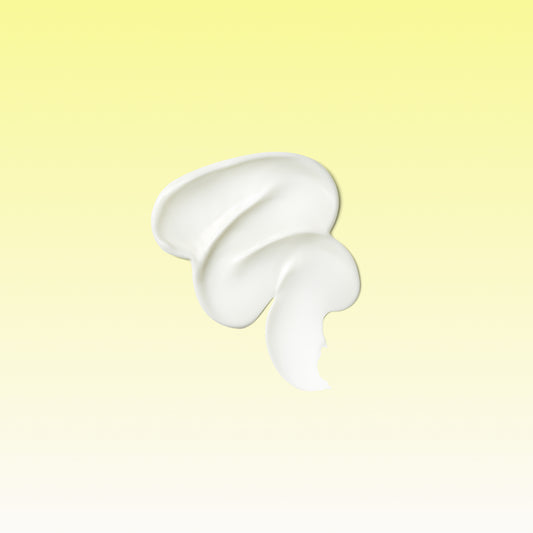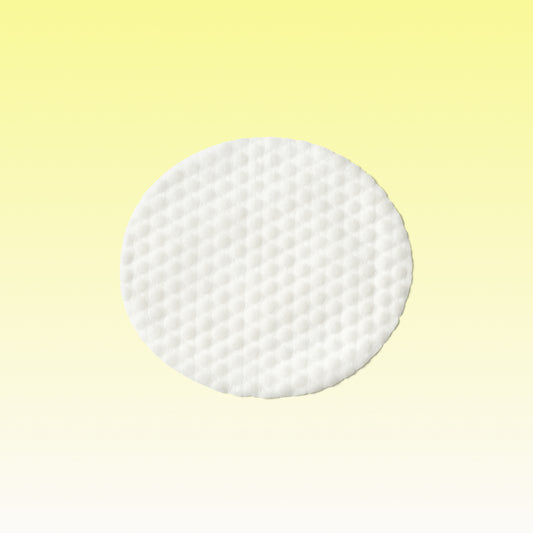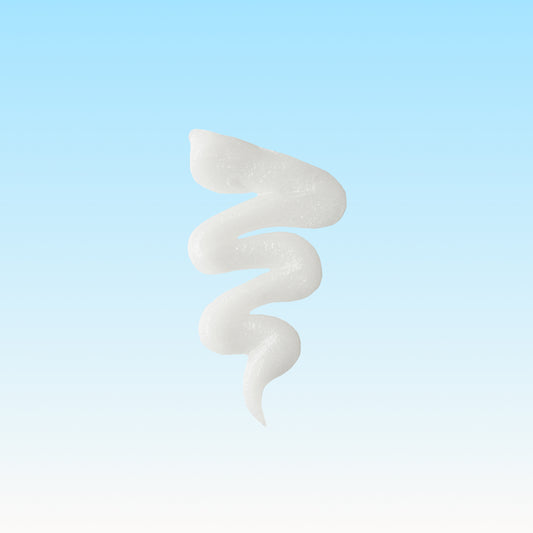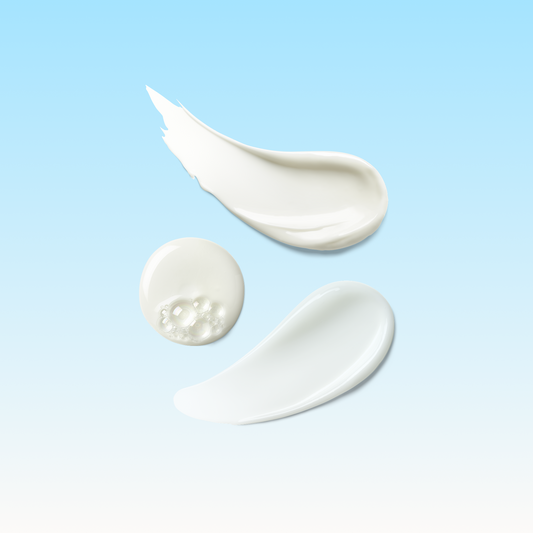S2:E2 The Skin Barrier: What You Know, What You Don't Know, and What You Need to Know with Dr. Dustin Portela
[Amy Gordinier] Total Skin Nerds is brought to you by Skinfix. We're clean, clinically active and on a mission to deliver healthy skin. Welcome to Total Skin Nerds, I'm Amy Gordinier, founder of Skinfix. Total Skin Nerds is where I get to nerd out with some of the world's foremost experts in skin. We deep dive into issues related to skin disease, skin care ingredients, diet, and lifestyle modifications to support skin health and even spiritual practices and their skin benefits. I'm excited for this episode of the Total Skin Nerds podcast.
Today, in season two episode two, I have the honor of speaking with board certified dermatologist and dermatologic surgeon, Dr. Dustin Portela. Given his popularity on social media, he may need no introduction. With 1.8 million TikTok followers, you may recognize him as 208skindoc. From his own practice in Southeast Idaho, Dr. Portela's professional interests include skin cancer, surgery and prevention, facial reconstruction, complex medical dermatology, and wound healing.
With his extensive expertise, I'm going to pick his brain on one of our favorite topics at Skinfix, the skin barrier. After all, Skinfix was founded on skin barrier health. So we're going to focus on that. What is the skin barrier? What is it composed of? What happens when your barrier is weakened, something referred to as a leaky skin barrier? As you'll see, our conversation touches on some important life wisdom too. Before we dive in, I want to take a moment to thank everyone for listening to this podcast.
The Skinfix team and I would love to hear more from you. Please take a moment to leave us a review and let us know what you'd like to hear more of. We would really appreciate it. Stay tuned skin nerds. This is going to be a masterclass on the skin barrier. Dr. Portela is such an honor to have you on season two of Total Skin Nerds, I absolutely admire everything that you do, love all of your social media content, really honored and grateful that you took the time to talk to us today.
[Dr. Dustin Portela] I'm excited to be here. I appreciate you inviting me on the show. It's an honor.
[Amy Gordinier] Absolutely. So tell us a little bit about yourself. Where are you from? Where are you now?
[Dr. Dustin Portela] Yeah. I grew up in Idaho, the great potato state in the Pacific Northwest. My dad's a school teacher, taught anatomy and physiology, and I developed an interest in the human body and medicine from an early age. I went to undergrad at Idaho State University in Pocatello, Idaho. I did medical school at Des Moines University in Iowa, and my residency in dermatology through Michigan State University. I was in the Detroit Michigan area. Then after all of that, I found my way back to Idaho. I practiced in my own clinic, Treasure Valley Dermatology in Boise, Idaho. I've been here for about four years.
[Amy Gordinier] Amazing. My grandmother's from Idaho actually.
[Dr. Dustin Portela] Oh, okay.
[Amy Gordinier] Yeah. I never met her. She passed away when my mom was in university, but she was born in Idaho and raised there most of her life.
[Dr. Dustin Portela] Very cool.
[Amy Gordinier] So tell us a little bit about why dermatology.
[Dr. Dustin Portela] Yeah. Everybody, when they're going to medical school, is trying to find the specialty that they think is going to be of most interest to them, that they're going to enjoy doing for a long time. I went to medical school with the intention to go into emergency medicine. I found it very fascinating, very exciting, very fast paced, and I enjoyed doing procedures and working with my hands, and you certainly get to do a lot of that in emergency medicine, they're suturing things, they're doing intubations and CPR and all this stuff. But I found that lots of other specialties do procedure as well.
So, I loved general surgery, I loved orthopedics. And overall, I started to ... I tell people I had a conversation between 50 year old me and 30 year old me about what we wanted to do for the next 20 years, and 50 year old me wasn't so interested in working nights and weekend, when 30 year old me thought that was real exciting. But my wife was on the side of 50 year old me and thought that dermatology might be a little bit better, and I've discovered they do a lot of procedures.
One thing that really appealed to me about dermatology is that the patients are often very happy, they're coming in and they're happy to see you. You're making them better quickly, they're planning on coming in to see you in advance. Nobody's planning to go to the ER today, they're all having the worst day of their life.
[Amy Gordinier] Good point.
[Dr. Dustin Portela] The people that you surround yourself with make a difference in how your day's going to go every day. And so, working with great staff and happy patients just makes all the difference. And I love the procedures that I get to do in dermatology.
[Amy Gordinier] So much wisdom in that. I love that 50 year old you talking to 30 year old you. I wish I had done that when I was 30, but also just understanding about quality of life and what's going to deliver that for you, and the people that you're around every day are so important. So, I love that wisdom. So in addition to a very busy practice and helping lots of patients, you also very generously give your time to educate all of us on social media, which is amazing, because not everyone has access to dermatologists. So for you to take the time to be on social media and educating, I have a huge amount of respect for. So tell us a little bit about how 208skindoc came to be.
[Dr. Dustin Portela] Yeah. That's a great question. So I've had an Instagram for a long time and mostly I was just posting whatever I was doing as a resident, whenever we'd have cosmetic training days never had any idea that it could grow and be something really big. It was just kind of everybody else is on Instagram, I might as well be there. Then when I got into my own practice and I was running a business, I realized marketing is important, it's competitive, there's a lot of dermatologists. At least in my area locally, I know that it's sometimes hard to access a dermatologists in more rural areas.
So, I took to social media a little bit more. I started one for the practice, I did research, I read Gary V, he's a big social media influencer, and started to understand what I needed to do. Then early on in my practice, we got a solicitation from some company that their thing is, they buy phone numbers and they turn around and sell them, and they said, "Hey, we have this phone number in our possession, 208skindoc, would you like to buy it?" I'm like, "Well, that sounds like a great phone number, 208 is the area code here."
I was like, "Yeah. I mean, that's perfect to advertise and market." And I'm like, "I'm going to go all in, 208skindoc, that's my phone number. That is going to be my social media handle, and that's what I'm going to push." Then I dove into TikTok, that grew, Instagram grew, YouTube is growing, and I can provide education there, but that's really where 208skindoc came from first. It's now the phone number for my clinic.
[Amy Gordinier] So cool. It's genius. So we want to dive into the skin barrier, which I know is something that is a passion of yours and certainly is really what Skinfix was founded on. Want to just really talk about what it is and what happens when the barrier becomes leaky, and how it connects into some skin issue and aging and all those things. So, from the top, what is the skin barrier? What is it comprised of and what is it?
[Dr. Dustin Portela] Yeah, so the skin barrier is many things. Our skin cells are a component of that. But then if you think of your skin barrier as a network of bricks and mortar, you have the skin cells, which are like the bricks in a brick wall, but the mortar is critical in order to have a functioning brick wall if you're trying to build a structure, and that mortar is made up of different things and in our body, not only the skin cells, but it's a complex network of proteins and lipids and fats that all make up that mortar, that sit between the skin cells and hold them together.
And then those things are not only in the cell wall of the skin cells, but they're inside the skin cells. The body has the ability to produce more in response to triggers, environmental stress, when we compromise our skin barrier. So, we think of that skin barrier as bricks and mortar, and there's proteins and lipids and cholesterol and fatty acids and a whole bunch of stuff that goes into it to make it function well.
[Amy Gordinier] And what is its function? What is its primary job?
[Dr. Dustin Portela] Yeah. It serves two main functions. If we're just speaking broadly, of course, keep bad things out and keep good things in. So, every day we're exposed to environmental toxins, pathogens, pollution, all of that kind of stuff insults us every day. And our skin is constantly battling to fight those things off. If we do have a cut or a scrape, it's fighting off any bacteria that could get in there. So, keeping the bad stuff out and then keeping the good stuff in, we're made of a lot of water. We need to keep that water in. We need to keep electrolytes in, in order to function properly, in order to have sensation and nerve conduction and muscle function. All of that is important.
So, that skin barrier plays such an important role in the homeostasis of our body so that we function well. I don't think people appreciate all of the things that it does, but it's a huge part of our immune system and just keeps us healthy in many ways.
[Amy Gordinier] I think in this era of COVID obviously, and also heading into flu season, how important is the skin barrier? You talked about immunity and also just being a protectant, how important is the health of the barrier at keeping us healthy against pathogens and viruses and things in our environment?
[Dr. Dustin Portela] Sure. So, the skin barrier is ... I couldn't tell you exactly what percentage of our immune system is sitting in our skin, but it's a big percentage, and the same goes for our gut. We have this huge part of the immune system that lines the gut, because that's where we're exposed to pathogens. It's either on the skin or through the intestinal tract, and the immune system is the first line of defense there. So, we get exposed to bacteria all the time, and of course, they say we have more bacteria and fungus living on our skin, more bacterial cells, than we have cells in our entire body. They're just so much smaller.
And most of them are harmless, but they have the potential to become harmful when that skin barrier is compromised. Of course, there's certain skin diseases that break down your skin barrier like eczema, where you're a lot more prone to get infections, both bacterial, most common, it's going to be staph and strep, but also viral, and the herpes simplex virus, cold sores are a big one, shingles. There's lots of different types of herpes viruses, of course, that has a bad connotation, but there's many different types. They're not all herpes simplex, but many different viruses can affect the skin as well as the staff and strep bacteria. And then of course, random ones.
Especially through the winter, when our skin barrier is more likely to get compromised, we need to do things to build it up, to protect us against those pathogens that are always trying to invade us.
[Amy Gordinier] Let's talk a little bit about lipids, the lipids that are in the barrier and how does the quantity and quality of those lipids affect our barrier health?
[Dr. Dustin Portela] Sure. So, the skin barrier has many different lipids in it. So, ceramides are one component of that cholesterol. There's different types of cholesterol that make up that, and those are fatty acids, and then triglycerides to a degree, other types of fatty acids. We do have to have a proper balance of those. There's ceramide 1, 3 and the ratio that those appear in the skin impact the way that the skin functions, and our body produces those.
But as we get older, our ability to produce the right concentration, quantity ratio of lipids typically decreases, and it's part of why we see dry skin more commonly in the elderly population. Ceramides is probably the most recognizable, one of those lipids that people know because of like CeraVe and Skinfix, and many other companies now advertise that they include ceramides in their formulation because it's important to replace those and put them back on the skin as our skin function decreases with age.
[Amy Gordinier] And so, how important would you say skin barrier health is in fending off the signs of aging as well? You talked about that dryness, that dehydration, how important is the skin barrier in combating wrinkles and sagging and dullness and all of those other aspects of aging that we don't love?
[Dr. Dustin Portela] Yeah, absolutely. There's many components of the skin barrier underneath, and we've talked about a brick wall. If the mortar starts to crumble, everybody's seeing a dilapidated brick wall as that mortar starts to dry up and crumble with time. And you see that the bricks start to cave in on themselves, similar to a dried out river bed. You see all those cracks. As soon as that barrier is compromised, then the pathogens, the toxins, pollution from outside can get in and start to impact these structures deeper in the skin. Things like elastin fibers and collagen.
And as you get dry, you're going to see those little cracks and dryness and flakes appear on the skin. Collagen will then become compromised and damaged. So you're going to get skin laxity. You can get the sagging that develops into fine lines first and then deeper lines and wrinkles that don't go away if you don't do some major resurfacing procedure. So, the skin barrier protects our whole body homeostasis, but immediately below that skin barrier are those critical structures like elastic fibers and collagen that really show those early signs of aging.
[Amy Gordinier] So our best defense against aging isn't necessarily all of these actives in all of these procedures that we often go to, it's really first and foremost, it sounds like Dr. Portela a healthy barrier is the best and first line of defense. So, talk a little bit about a leaky barrier. What does that mean? I know you talk about it on your social channels and what is a leaky barrier, and what can happen when our skin becomes leaky.
[Dr. Dustin Portela] Sure. I'll keep going back to that brick wall analogy. When you see that mortar start to crumple and the bricks start to lose that little bit of space between them, our skin cells can do a similar thing where as the barrier is compromised and those proteins and lipids may not be present the way they should between our skin cells, then the first thing that happens is we start to lose water through the skin. As that water escapes, we often experience dryness and flaking and itching. We have lots of little tiny free nerve endings all throughout our skin, and that's why our skin is such a good sensory organ. We have all these little free nerve fibers, but when they get exposed to the air, it's irritating and they start to itch, they start to tell us something is not right. You need to fix this, I'm not happy.
So those are the early sensations. And then most of us, when we start to feel that we're going to scratch, and of course that removes skin cells that further compromises the barrier, we lose more water and it can get into a bad cycle, a negative feedback loop. When you compromise the barrier enough, now you're at risk for infections, both staph and strep, which are already on our skin. Then they can get down into those cracks and find an environment where they can proliferate a lot more than what they can on a healthy skin barrier.
[Amy Gordinier] So, what are some of the early signs? You talked about itch. Are there other early warning signs that our barrier is becoming leaky?
[Dr. Dustin Portela] Yeah. Dryness, so fine, almost like sandpaper like flaking is going to be a very early sign in that. Redness, tightness, a tight feeling. Sometimes you might feel that when you wash your face, if you're removing too much of the oil and you feel that your skin feels tight or squeaky clean afterwards, that's actually an early indication of a compromised barrier.
[Amy Gordinier] Okay. So now what do we do to fix a compromised barrier? What does the science tell us about the most effective ways to replenish those lipids and put that wall back together?
[Dr. Dustin Portela] Our body is really good at healing itself, if we give it the chance, and you talked about actives just a minute ago. Using active ingredients is a fine balance between tearing down our skin barrier in order to help promote skin turnover, skin cell turnover, and a radiant and a brightness to the skin. Most of the actives that we use, especially if we use them too frequently or too much will compromise that skin barrier.
So the first thing is to stop using all the actives. You need to get away from exfoliating acids. You probably need to cut back on retinol or stop altogether until things are better. So, backing off on the active ingredient is the first thing to give your skin a chance to heal. That includes the cleanser that you use, even if it's only on the skin for 60 seconds or less, if you're using an exfoliating cleanser or a scrubbing cleanser, you need to go and switch to a very gentle cleanser.
And then of course, you need to replenish the things on the skin that are needed to repair that moisture barrier. And that's going to be the essential fatty acids, like the ceramides, the triglycerides, the oils, all of those kinds of things. So, backing off of the actives and then really lathering on a moisturizer. I like thicker moisturizers on compromised skin barriers. And you can even then follow that up with an ointment, and that's a something called slugging that people may do at the end of their skincare routine, taking something like the 911 Ointment or pure petrolatum and just putting a very thin layer of that to really hold that water in the skin.
Plain petrolatum doesn't really give your skin anything, but it's just an occlusive. So that that water doesn't escape and it helps facilitate the body's ability to heal itself.
[Amy Gordinier] I love that. I'm a huge fan of slugging. I have dry skin and I live in a dry climate and all winter long, I'm slugging, going to bed with that nice layer, that nice occlusive layer. Talk a little bit about skin issues and how they're related to this health of the barrier. Even something like acne. Is there a connection between most skin concerns and barrier health?
[Dr. Dustin Portela] There really is. Most of us will immediately identify something like eczema as the most stereotypical example of that. Eczema patients are dry red itchy, and that's due to an intrinsic or an internal problem with the proteins, like filaggrin, to get a little bit technical, that our skin needs to build that moisture barrier and make it healthy. And so you can have a genetic defect that prevents the ability for your skin to make everything that it needs, and eczema or atopic dermatitis is going to be the most common and well recognized example. But nearly every skin disease has a barrier component to it, including psoriasis, including acne.
So, acne patients, they have all these blemishes and all that inflammation, decreases our skin's ability to protect itself. There is the presence of bacteria, the acne's bacteria on the skin that then gets down in our sebaceous glands and causes those pimples to get big and red and painful. So, acne is a moisture barrier problem as well. Then of course, most of the ways that we treat acne are going to further compromise our moisture barrier because we're putting on active ingredients, exfoliating acids, benzoyl peroxide, salicylic acid. And all of those have the potential to dry us out even further and risk further damage to that moisture barrier. So, even though it's not as well recognized, there is definitely a barrier concern with acne patients.
[Amy Gordinier] How do you talk to your patients, though, who might have acne, might have an overproduction of sebum and don't want to use any moisture on their skin, they just want to strip it and get rid of all that oil, what would be your regimen for somebody who's quite oily and acne prone in terms of treating the acne and also protecting the barrier?
[Dr. Dustin Portela] Yeah. There's a couple different ways you can approach it. And because I have the ability to write prescriptions, I rely on those as the way a to fix the acne. So, we can use prescription strength retinol. We can use antibiotic lotions like clindamycin, and those are really going to do the heavy lifting. I like to build a very gentle skin care routine for my patients and educate them on the importance of the moisture barrier. Even though they might have that temptation to use less moisturizer and to use aggressive cleansers, I get almost everybody on a very gentle cleanser that I know can remove enough oil, but not too much to leave them tight and squeaky clean. So, a good gentle cleanser and then a moisturizer.
And if they're very oily, we may use a lighter weight moisturizer or maybe something with more of a gel-like texture. But most people, especially if they're dry or normal skin, even combination can tolerate a heavier moisturizer, like the triple lipid peptide, and they're going to do just fine with it, and they just have to get educated that that is what their skin needs, and it's not going to make them more oily. I think that there's a misconception that if you use a moisturizer, it tells your skin to stop producing oil and that's not the case.
[Amy Gordinier] Well, let's talk a little bit about sunscreen and the importance of the barrier when it comes to dealing with UVA, UVV radiation.
[Dr. Dustin Portela] Yeah, sure. There's a few different components of that. Now, of course, everybody's experienced the sunburn, and you know the symptoms, the feeling that you get afterwards, you're often quite itchy and you start to flake and peel. That flaking and peeling is an obvious indication that your moisture barrier is damaged, and you're literally peeling off dead skin and that's all a component of your moisture barrier.
So, using a sunscreen, not only prevents that direct physical damage to your moisture barrier, but when you have a sunburn, all of that inflammation, your body has to switch to repair mode and it can function the way that it should. It's not able to continue to produce the lipids, the cholesterol and things that help build a healthy moisture barrier. So you're going to go through a process where you have to switch into repair mode and you can't continue to just have a healthy moisture barrier. Everybody has had a sunburn and then put on the wrong product, you use a lotion that maybe has a little alcohol in it, and you feel that burn. It burns because your moisture barrier is not protecting you the way that it normally would.
[Amy Gordinier] So let's talk a bit about that burn, because I think a lot of times when we use actives, historically, we've been conditioned to think that it's not working unless you can feel it, and the lower the pH the better the burn, and it must be really doing its job if I'm feeling it. What is your take on that perspective, Dr. Portela?
[Dr. Dustin Portela] I do aggressive chemical peels in my office. We'll take high concentrations of TCA and we'll do aggressive chemical peels for patients with lots of lines and wrinkles and brown spots, patients with precancerous spots on their skin. This is a procedure that patients maybe only be able to go through once a year because it's aggressive and they're going to be in pain. That's not the way that you should be doing things at home. So, if you're putting on a light exfoliating acid, you don't have to feel it. And if you're using it every day, and you're starting to feel a burn and a tingle, then it's too much for at home use and you need to back off and use it more frequently.
That moisture barrier in order to stay intact, you're not going to be stripping away everything where those nerves are getting irritated. A little bit of a tingle may be okay from time to time, but that should not be like a daily or multiple times a week practice.
[Amy Gordinier] And for somebody that suffers from eczema or rosacea, do you suggest that they stay away from active acid altogether, or are there certain assets that you think can be helpful in particular with eczema in the exfoliation desquamation process? You get those skills and plaques, what is your take on acids and skin issues like eczema or rosacea?
[Dr. Dustin Portela] Starting with rosacea, I find that those patients do not do very well with active ingredients. So, I don't recommend that patients with rosacea use retinol until we really get them back to normal and really avoid exfoliating acids. It typically is going to make them more red. It's going to irritate them further. I just find that that's the patient population that just does not handle actives very well. We have to control that inflammation.
Now, with patients that have eczema, we can sometimes get them to use a little bit of exfoliation, but it has to be very mild, and I prefer that to be in a lotion formulation. So it could be a lotion that has lactic acid in it, or ammonium lactate. There's a few brands on the market that will include some of these exfoliating acids. When you put those on the skin, especially after a shower or a bath, it actually can help to remove some of the dry flakes, but helps to bind onto that water and hold it on your skin very effectively. So, I do think that there can be a place for very gentle exfoliation in the eczema population, but I just don't see as much success in the rosacea population.
[Amy Gordinier] Okay. Interesting. I've developed rosacea in the last few months. I'm not sure why, it just came on and I did see my derm in New York and she said exactly that. She said, "Lay off the BHA. No AHA. Just use the barrier line." And I have found that it's been helpful, but I'm anxious to get back to my exfoliating routine. So I have to just be very gentle and careful with that.
[Dr. Dustin Portela] Yeah, definitely. I think we're a mask has contributed to a lot more people experiencing rosacea like symptoms.
[Amy Gordinier] Interesting. Yeah. What is happening in the skin with rosacea then Dr. Portela? You said it's inflammation. What is the primary cause in your opinion?
[Dr. Dustin Portela] We don't necessarily know the primary cause, there is a genetic predisposition. We can see it run in families, and classically, we'll see it in that patient of Irish descent, very fair skin and rosy cheeks, maybe a red nose, but there's something that often serves as an initial trigger and that may be environmental. Then they start to get more inflammation in the skin, and inflammation meaning the blood vessels dilate and you've released chemicals, we call them cytokines in the skin, and then something called an MMP or a matrix metalloproteinases, again, to get a little bit technical.
But what these do is they signal to your body that there's a problem, even when there might not really be a problem. And you get in, again, a negative feedback loop. So the blood vessels dilate and more blood is coming into the skin. You appear more red, more chemicals are brought in and it just feeds in on itself. And so you compromise the moisture barrier with inflammation, those chemical signals tell your body to develop new blood vessels. So that's why you can get those spider veins that might appear on the side of the nose.
And some people will do things that flare them up, that make them worse, and we call these the triggers of rosacea. For some people it's alcohol, it may be caffeine, chocolate, it may be hot weather or exercise induced that really makes them flare up. So, I work with patients to identify those triggers and try to back off on the things that might cause it to get worse as an initial way, just to modify behavior, to control the rosacea.
[Amy Gordinier] Interesting. Yeah. It's tricky to get rid of. I've been working at it for a few months and trying to identify my triggers honestly, and I think for me, it is exercise and sweating and being in a hot environment. And unfortunately, that something I know I cannot but it's tricky. It's a tricky one. Talk a bit about barrier health on the body. When you see patients, do you talk about holistic skin care? Do you talk a lot about the body? I mean, obviously it's the greatest percentage of skin on our bodies, it is from the neck down, and how important is it to keep that healthy and hydrated as well as the face?
[Dr. Dustin Portela] Yeah. Of course, it's really important and we've all been washing our hands so much more using hand sanitizer. Of course, we talked a little bit about maskne or this irritation for masks, but hand dermatitis has been huge over the last year and a half. People were washing their hands so much, but not restoring the skin barrier that we saw so many dry cracked face or hands. And so, that was an area that a lot of people had to learn to take better care of. I, as a dermatologist, see a lot of elderly patients because they often are the ones who are coming into skin cancer concerns, but also dry skin and the legs, the legs are a huge area for dry skin, and they get dry and cracked and flaky.
And especially in older men who have never been in the habit of using moisturizers, it's a process to educate them about which moisturizers to use, what is the best time to put them on. So, I do spend a lot of time educating my patients on how to take care of the skin barrier on the rest of their body, and my general advice is to find a thicker cream. I like creams better than lotions, especially for the body. And to put that on the skin when your skin is damp, so it's ideal to do it when you step out of the shower.
So, turn off that water, let yourself drip dry for a little bit. Or if you are in more of a hurry, you can pat dry, but don't completely dry your skin. Then grab that tub of moisturizer and smear that on, and it's going to help to hold onto that water. That's the best time to put on the moisturizer and really hold it inside the body.
[Amy Gordinier] I love that. Would you say the same for the face when you cleanse your face, just pat dry and put your serum moisturizer right on top of stamped skin? Is that the best method?
[Dr. Dustin Portela] Yeah. Unless you're using certain actives. I think so. You don't have to completely get it dry, but if you do use a retinol at night, you can get too much penetration with a retinol on damp skin. So you may need to add a little bit of moisture or avoid having moisture on the skin if you're using a retinol, otherwise if you just cleanse and you're using a moisturizer, it's okay, if there's still a little bit of moisture on the skin and then use your cream, whatever it is.
[Amy Gordinier] You talked earlier about damaged skin and actives, do you see that if someone has a healthy barrier and they've kept their barrier healthy, that the actives have less irritation? Is there a link there?
[Dr. Dustin Portela] Oh, certainly. Of course, having a healthy moisture barrier is going to improve the quality of your skin, but also if you can maintain it, you're able to use your actives more regularly, and that just feeds into compliance. So, if you have acne and you can only tolerate using a retinol once a week, you may not see as much improvement as if you really maintain a healthy barrier, and you can use that retinol every day because you're going to be constantly putting that retinol on and allowing it to work rather than intermittent pulse dosing, if that makes sense.
[Amy Gordinier] Yeah, no, totally makes sense. So, just to close out our session on the skin barrier, before we jump into some of our listener questions, what would be your number one recommendation for the barrier? What's the most important thing someone can do to keep their barrier healthy?
[Dr. Dustin Portela] So, it will depend a little bit on how oily you are, but I do think everybody should use a gentle cleanser and a moisturizer and a sunscreen every day. Those are the things that are going to feed your barrier the best from an external perspective. So you don't need to be stripping away everything. You really need to just create an environment, so your skin can regulate the way that it needs to. Because as long as you don't have intrinsic eczema, atopic dermatitis, your skin is going to do pretty good as long as you're not insulting it on a daily basis.
So, use a good lipid rich moisturizer at least once a day and a sunscreen at least once a day, reapplication of course is ideal, but in real world conditions, it doesn't always happen. There's a whole nother conversation to be heard on the way that we eat and diet and the way that that impacts our skin. There's a lot of research that needs to be done, but the more healthy you make your body, the more healthy your skin will be.
[Amy Gordinier] I love that. I'm a huge proponent of functional medicine and a follower of Dr. Hyman, Dr. Axe, Dr. Cole, and I love that you connected the two lifestyle is so important, and sleep and all of that good stuff. Beauty sleep is a real thing. It's for real, it really helps the skin. I love that. Okay. So we have some questions from our social media followers and our listeners who wanted to ask-
[Dr. Dustin Portela] Great.
[Amy Gordinier] Specifically ask you some stuff. So, one of the questions was, "Dr. Portela, do I need to cleanse morning and night?"
[Dr. Dustin Portela] So not everybody does. If you're using a gentle cleanser, you can cleanse twice a day, no problem. But for some people, as long as you're not using certain actives at night, you may just want to rinse your face with water in the morning, rinse in the shower, rinse at the sink, whatever it is, but you may not need to use a cleanser. I typically recommend cleansing at night because that's after you've been exposed to the environmental pollution, toxins, more dirt, and you've accumulated oil throughout the day. So, cleansing twice a day is not necessary for everybody, but if you're very gentle, it's not going to be harmful.
[Amy Gordinier] Okay. I was in New York last week though, and slept with the window open, and I would say, if you live in a big city, sleep with the window open. I just felt like I needed to cleanse my face in the morning. Fragrance in skin care products, can it damage the skin barrier? Was one of the questions we got.
[Dr. Dustin Portela] Typically, no, unless you have a specific allergy to the fragrance, and fragrance allergy is a broad topic. When we say fragrance, of course, there's dozens, probably hundreds of different things that could be considered a fragrance. And so, you may be allergic to something, and if you're allergic, you don't want to use that particular fragrance. But by and large, only maybe 2% of people are going to be allergic to some fragrance. If you're not one of those people, having a light fragrance in your skincare is not going to be harmful and should not damage your moisture barrier. So you don't need to shy away from products that may contain fragrance.
I personally don't like products with heavy fragrance, but sometimes a light fragrance gives you a nice experience. And some part of skincare and self care is the experience that you have. You don't need to be afraid of fragrance, but you don't necessarily need to go out of your way to include it in your routine if your stuff doesn't have it.
[Amy Gordinier] Okay. And just to tag onto that question, essential oils and alcohol, what are your thoughts on those two in terms of the skin barrier and skin care?
[Dr. Dustin Portela] So, sometimes that fragrance is going to come from essential oils, and some essential oils may serve a function in your skincare routine. They can have some antibiotic or antiviral or antifungal properties, but they do contain again a little bit of a risk of contact dermatitis of allergic reactions. So, I'm not a big fan of straight essential oils on the skin. Of course, you know there's whole industries devoted to using essential oils on the skin for all sorts of problems, and I'm not an advocate or a proponent of that.
But if your skincare contains dilute small concentrations of essential oils to serve a function or to improve the experience, it probably is not harmful for you. And then you asked what was the other part of your question other than essential oils?
[Amy Gordinier] Alcohol.
[Dr. Dustin Portela] Alcohol. So, there's drying alcohols and non-drying alcohols like stearyl alcohol, and I would typically try to stay with those non-drying types of alcohol. Alcohol is just a chemical OH group. And just because something is an alcohol or may say alcohol on the bottle does not mean that it's going to dry your skin out. So, there's a lot of nuance to that. So I don't think you need to avoid it necessarily. I would avoid toners that contain drying alcohols, or certainly don't use isopropyl alcohol on your skin.
[Amy Gordinier] Right. That's always a tricky one for consumers because we do use some of the moisturizing alcohols, the fatty alcohols in our products, which are very different than the drying alcohols. And so you get a lot of questions from consumers about how to identify which is which. I think a lot of the influencers and derms on social media have done such a great job in educating people how to [inaudible 00:37:55] which is helpful to us, but it is confusing. It can be confusing. Probiotics, we had a question about, are probiotics in skincare really effective and important?
[Dr. Dustin Portela] So, this is an area of emerging research. There's some evidence that shows limited benefit, but most of the time in your skin care, it's going to be things that help feed the good bacteria on your skin. We're not putting on skincare that actually has bacteria in it. I don't think that's approved by the FDA, the way that yogurt, like yogurt has actual bacteria in it, live active cultures. That's not the same types of probiotics that are in skincare. So, there's an area of research, again, that I think that it's very promising. I think that we're going to see huge benefits as we learn to manipulate the microbiome of our skin.
So choosing actives that may help support a healthy microbiome, I think is a great idea, but it's not precise yet, where it's not an area of precision medicine where we can say, "You have eczema, you need to use this particular probiotic, and that's going to fix the problem." It's not a targeted therapy. It's a broad comprehensive strategy that can fit in to care for dry or compromised skin.
[Amy Gordinier] It is exciting though, the research that's emerging, as you say, with prebiotics in particular, as you mentioned that help to feed the good bacteria, and then even postbiotics. Some of the waste matter, if you will, from organisms, that can be really effective on the skin. But as you say, the scientists seems to be still bubbling up and it'll be exciting to see what we can do with that topically. Then the last question someone asked, "If I have oily skin, should I not use lipids?" If I see the word lipids on my skincare, should I be concerned if I have oily skin?
[Dr. Dustin Portela] So, it's not something that you need to shy away from. You may choose to use a moisturizer that has a lighter texture, but just because it may contain lipids or ceramides is not a reason to avoid it with oily skin, your skin still needs the things that it needs in order to have a healthy moisture barrier.
[Amy Gordinier] Amazing. Thank you so much for your time, Dr. Portela. This was a fantastic conversation about the skin barrier, super comprehensive, and we're very grateful to have had your expertise on Total Skin Nerds.
[Dr. Dustin Portela] It's my pleasure, and I'm glad I could be on.
[Amy Gordinier] You can catch Dr. Portela's super insightful TikTok videos on his channel @208skindoc and check out his YouTube channel, 208skindoc. I hope you enjoyed that skin barrier masterclass. I want to thank Dr. Portela for nerding out with me and for educating us all on what the skin barrier is, how it functions and why it's so important to our bodies and our survival really. Here are three things that really stood out for me in our conversation. One, I think it's so important to recognize that the immune system isn't some invisible out of sight mysterious thing. Part of our immune system is right under our noses, right on our skin. That's one of the many reasons that a healthy skin barrier is so directly connected to our overall health.
Two, I found it intriguing what Dr. Portela said about how so many skin diseases are linked to the skin barrier, from psoriasis to eczema and even acne. They're all directly linked to skin barrier health and a compromised barrier. Three, lastly, I love this bit of life wisdom from Dr. Portela, the people you surround yourself with make a difference in how your day will go. I'm fortunate to be surrounded by some of the most talented, dedicated, and inspiring people.
Thank you for listening to the second episode of the second season of Total Skin Nerds. We'd love to hear from you and would be so grateful if you could take a moment to leave a review, and please subscribe to the show on Apple Podcasts and Spotify or wherever you listen to podcasts. Total Skin Nerds is produced by Rob Corso, Casey Kahn and Howie Kahn for FreeTime Media. Our theme music is by John Palmer. Special thanks to Lauren Fonda [Amanda Naman 00:42:18] Megan Collins and [Carmine Mantoto 00:42:20] and I'm your host Amy Gordinier. Till next time, skin nerds.
Speaker 3: Total Skin Nerds is a podcast created to educate, it is not a substitute for professional care by a doctor or other qualified medical professional. This podcast is provided on the understanding that it does not constitute medical advice. If you are looking for help with a skin concern, we would encourage you to seek the advice of a board certified dermatologist, functional medical practitioner or other qualified healthcare provider.
You can find a registry of board certified dermatologists in the U.S. at find-a-derm.aad.org, and in Canada at dermatology.ca. For a registry of qualified functional medical practitioners, you can visit ifm.org. Thank you so much for joining us on this episode, we hope that you enjoy listening to Total Skin Nerds, as much as we enjoy making it.















